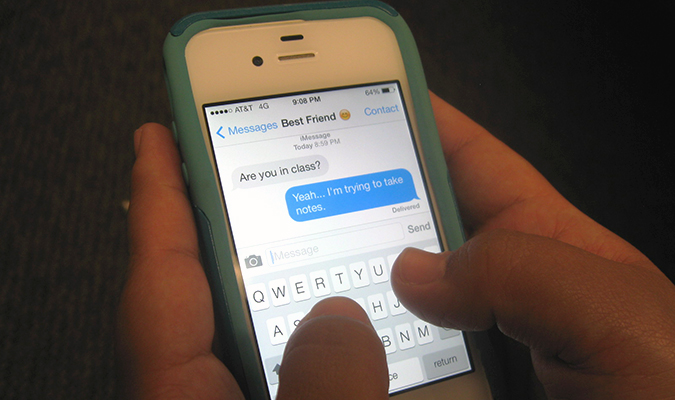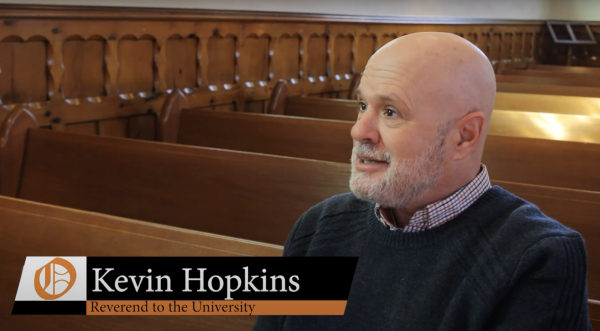Professors offended by cellphone usage
Students might think they are sneaky when they sit with their hands in their laps, behind books or under desks, but professors know what is really happening.
Cellphones have become a universal tool, but many Baker University professors find them too distracting in the classroom. To combat the disturbance, some faculty members are making policies for their courses.
Related Story
EDITORIAL: Cellphones create classroom distraction
Tamara Slankard, assistant professor of English, has a zero tolerance cellphone policy. Breaking this rule can result in a student being kicked out of class on the second offense.
“It was a problem for me several years ago,” Slankard said, “which is why I started being a bit more militant about (cellphones.)”
Slankard taught at a school in New York before coming to Baker and found cellphones more difficult to regulate with up to 60 students in her classes. During the interview process for Baker, Slankard was asked questions on how she would deal with cellphones, and her policy was one that the humanities faculty agreed on. Slankard has found that Baker’s small class sizes have also helped her in enforcing her policy.
“That’s one of the good things about Baker,” she said. “I know all my students’ names a couple of weeks in, but they might not like it because I do notice a lot more easily here than I would at a larger institution.”
Some students agree that cellphones can be a distraction, but not all are against using them in class. Junior Rashida Simpson said although she follows the policies of her professors, she does not necessarily agree with them.
“As long as you get your work done and pay some kind of attention, then I think it’s fine,” Simpson said.
Some students do see cellphones as a distraction and agree that professors should have a policy in place preventing their use in the classroom if the faculty feel disrespected. Sophomore Brian Richardson believes that it is not only disrespectful, but also makes it difficult to learn.
“I think that it’s your choice if you want to put that learning impairment on yourself,” Richardson said. “I think the teacher has the right to say something if they feel offended by it, and in their class, they should have their own rule. So if they don’t want cellphones in there because they feel disrespected by it, then they should have the right to say so.”
Ryan Gibb, assistant professor of international studies, does not currently have a cellphone policy, but he will starting next semester.
“It’s disrespectful in that Facebook is seemingly more important and people have checked out,” Gibb said. “It’s a lost opportunity in that you spend money on college, and if you spend time on your phone, then it is a waste.”
Gibb’s policy would involve docking participation points when students are caught using a cellphone in one of his classes. It is a policy that he has seen professors use in the past with success. Most professors will make an exception for emergencies, but texting or checking Facebook can wait until after class.
“I don’t know if I could use the language that it makes me feel,” Slankard said.” It’s offensive. It makes me angry. It’s offensive to me. It’s offensive to everyone around. It’s rude and it’s disrespectful. “I don’t ask for much. It’s three hours a week where it’s just me, you and a book.”







